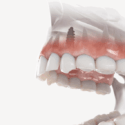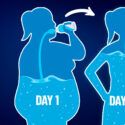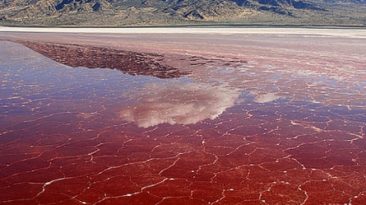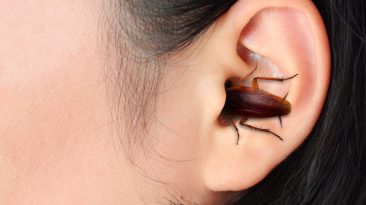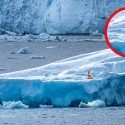Pack your bags because you’re traveling through space to see Alpha Centauri. There’s just one problem. It’s going to take 100 years. But is it possible to sleep through the trip? Get comfy because you’re going nighty-night for an entire century. What technology would you need? What would happen to your body while you’re asleep? And what sort of stuff could be waiting for you in the future?
So what is hibernation exactly? You know, besides a really long nap? It’s a prolonged resting state that animals enter during winter months or when food gets scarce. During hibernation, an animal’s body temperature, heart rate and metabolism decrease. A lot. That’s because the animal’s body enters a torpor state. It’s a deep sleep when the animal is almost entirely inactive.
Like me, at the end of the day. Now look, I don’t blame you for wanting to sleep through the winter. But 100 years in space is another story entirely. How would you even pull it off? First, you’d have to induce hibernation, which might get tricky. See, lowering human body temperature is harder than you might think.
Researchers think that because of our body mass, we wouldn’t be able to lower our body temperature to 0 °C (32 °F) as rodents do. It turns out we’re more like bears, as our temperature only declines slightly. But you might have a workaround. Have you heard of the process called cooling?
Hospitals use it to slow down or stop the body’s functions during some surgeries. Ice packs, coolers or even a cooled saline solution directly injected into your blood can lower your temperature. Then, you enter that torpor state we talked about before. But here’s the problem. We can only cool humans for 14 days, tops. So how do we keep you nice and cozy for the other 36,000?
When you freeze, ice crystals form deep inside your cells. Once formed, these cell cycles can rupture and cause permanent damage. To get around this, we’ll need to bring out the big guns. Cryogenics. This process involves replacing your regular bodily fluids with an anti-freezing agent. And you know what? It might work.
Scientists have used this technology to freeze and, more importantly, unfreeze 50 mm (2 in) of tissue without causing damage. Let’s say we got a cryogenic setup on the ship. Would it allow you to survive your 100-year journey? Research shows that animals who spend more time hibernating tend to live longer. Yeah. Hibernation could slow aging.
If that’s the case, you’d wake up in a new century. Technology would have advanced, societies would have evolved and the environment would have changed. When you wake up, you’d be in a completely different world that you may not recognize or understand. Think about it.
In the last 100 years, we saw the invention of talking movies, penicillin, helicopters, nuclear bombs, credit cards, seat belts, computers and the internet. Wait, when were seat belts invented? Wow, 1959. So we created the nuclear bomb (pause) before seat belts? Huh. A lot changed, and the Earth wouldn’t be exactly like you remember it. If there still is an Earth.
As climate change continues, more and more environmental disasters will occur. But wait. You wouldn’t even be on Earth. Remember? Before you went into hibernation, you were going to travel to another planet. Well, at least you wouldn’t have to deal with Earth’s climate change, I guess. But if I’m being honest, I don’t think you’d survive the trip. You’re just not built for it.
Your body doesn’t have the same physiological adaptations that allow animals to maintain a state of torpor. In reality, attempting to hibernate like an animal could be super dangerous. For example, a bear eats a large amount of food before hibernating, which allows it to store enough energy to survive the winter.
If you tried to do the same thing, your artery walls would thicken and give you a big list of health problems. A bear can remain completely still for months, but you would lose muscle mass and strength after just a week or two of inactivity. This is why bedridden patients often suffer from muscle atrophy and weakness. So we’ve still got some work to do before you can pull this off. We humans just aren’t made to sleep that long.
Sources
- “Why Do Some Animals Hibernate?”. Don Vaughan. 2023. britannica.com.
- “How Hibernation Works”. Ed Grabianowski. 2008. animals.howstuffworks.com.
- “Hibernation May Slow Ageing › News In Science (ABC Science)”. Anna Salleh. 2013. abc.net.au.
- “Human Hibernation: Secrets Behind The Big Sleep”. Frank Swain. 2014. bbc.com.
- “Hibernation In Hominins From Atapuerca, Spain Half A Million Years Ago”. Antonis Bartsiokasa, Juan-LuisArsuaga. 2020. L’anthropologie 124 (5): 102797. doi:10.1016/j.anthro.2020.102797. sciencedirect.com.







